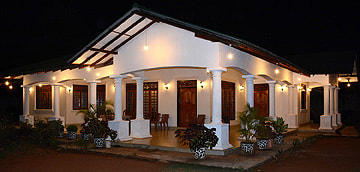0 Comments
Leave a Reply. |
AuthorNuwan Chinthaka Gajanayaka, Categories
All
Archives
June 2020
Buddhism A-Z
|
|
Find a list of 270 Sri Lanka travel destinations & attractions: CLICK HERE Our illustrated list of places of interest is sorted by travel regions, more precisely: by 22 most recommendable places for overnight stays. All 270 sights are within day-trip distance from one of those 22 major locations. (Please understand: Loading 270 images requires more seconds than usual.) |
Why travel with Lanka Excursions Holidays?
+ We are a local agency owned and run by Sri Lankans, not part of international holdings
+ We are well known for our direct and personal relationships with travellers
+ We facilitate authentic meetings with locals who are not from the tourism sector
+ We follow a strict policy not to push guests to visit shops and shops and shops
+ We have an unrivalled expertise to show you places off the beaten path
+ We provide genuine information instead of clichés and tourism industry slogans
+ We are a local agency owned and run by Sri Lankans, not part of international holdings
+ We are well known for our direct and personal relationships with travellers
+ We facilitate authentic meetings with locals who are not from the tourism sector
+ We follow a strict policy not to push guests to visit shops and shops and shops
+ We have an unrivalled expertise to show you places off the beaten path
+ We provide genuine information instead of clichés and tourism industry slogans
Our ambition is to provide high-quality information in preparation of your Sri Lanka holidays
... and even more superb travel experiences
... and even more superb travel experiences
we also run our own guesthouse near Anuradhapura:
First House Mihintale
87, Missaka Mawatha, Mihintale 50300, Sri Lanka.
0094 71 6097795
87, Missaka Mawatha, Mihintale 50300, Sri Lanka.
0094 71 6097795
|
Lanka Excursions Holidays
Registration Number SLTDA/SQA/TA/02179
255/24, "Green Park" Dawatagahawatta, Thimbirigaskatuwa, Mahahunupitiya East, Negombo, Sri Lanka
Office: +94 31 223 991 Hotline: +94 71 6097795 [email protected] Lanka Excursions Holidays office hours 8.00 to 6.00 p.m. daily (except from June Fullmoon Day)
|
if not stated otherwise, texts and photos provided by Ernst A. Sundermann, sales manager of Lanka Excursions Holidays
all rights reserved, © 2016 Lanka Excursion Holidays
all rights reserved, © 2016 Lanka Excursion Holidays
 RSS Feed
RSS Feed



